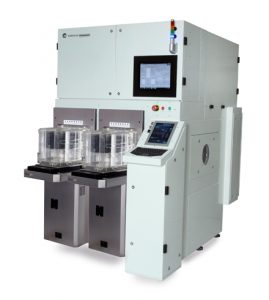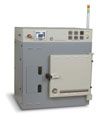This website uses cookies so that we can provide you with the best user experience possible. Cookie information is stored in your browser and performs functions such as recognising you when you return to our website and helping our team to understand which sections of the website you find most interesting and useful.
Vapor Deposition Systems
YES-ÉcoCoat (Formerly YES-1224P)
YES-LabCoat
YES-VertaCoat
Precise Surface Modification and Coating for Nanoscale Dimensions

Products in the medical industry require a diversity of surfaces from molecular specific bonding sites for DNA microarrays to enhanced biocompatible surfaces for medical devices. Products as diverse Microelectromechanical Systems (MEMS) also require hydrophobic surfaces to minimize stiction. As technology advances, the need for precise and reproducible control over nanoscale surface areas increases. While RF plasma can modify surface energies, the coating of functionally diverse organosilanes provides the ability for precise surface modification.
Vapor phase deposition is a process that assists in the deposition of a thin film of various materials in order to achieve precise surface modification. Reproducibility is crucial in the manufacture of products for the medical industry and the MEMS industry. Our tools are designed to control the process environment, so results are precisely reproducible, substrate to substrate and run to run.
Direct liquid metering for flash vaporization provides a consistent amount of chemicals in a vapor phase for a controlled reaction on the surface. We do not require a carrier gas that complicates the chemical delivery system. The flexibility to use a large number of different organosilanes is enhanced by the capability to elevate the temperature for low vapor pressure chemicals and to heat the substrates in a controlled sub-atmosphere process environment. This flexibility provides the ability for precise surface modification. For a reproducible process environment, we use VCR® fittings for valves to ensure reliable sealing and to make for easier maintenance.
Vapor Phase Deposition Performance
While wet chemical surface modification can be done, vapor phase deposition has become the preferred method for coating surface as the process environment can be tightly controlled. Due to liquid surface tension, the wet process can have poor contact between the solution and the surface, especially when the surface is textured with small features. Another problem with wet processing, or solution phase deposition, is this process typically uses water. Use of water causes slow condensation (polymerization) of silane molecules, so the deposition solution is constantly changing. This creates a challenge for process control. At sub-atmosphere pressures, the efficient mass transport of the organosilanes enable a monolayer to adsorb uniformly onto all the surfaces, including high aspect ratio features. Consistency of deposition is enhanced because carrier gas/ organosilane ratios are not a factor in the deposition process. Also, chemical usage for the vapor phase deposition process is dramatically less than the amount needed for wet application processes, significantly reducing waste and chemical costs.
Vapor phase deposition coating applications:
DNA and oligonucleotide adhesion- APTES and similar aminosilanes provide molecular specific bonding sites for microarrays.
Glass slide surface modification- Methoxysilanes and ethoxysilanes offer a variety of functional groups to provide precise surface modification, resulting in improved sample adhesion.
Silane coating for MEMS- A large variety of organosilanes can be used to produce a spectrum of hydrophobic surfaces which reduce stiction for MEMS devices.
Antifouling coating for medical devices – Surface modification for biocompatible materials to minimize the buildup of proteins.
Copper Barriers- For nanoscale devices, the thickness of conventional metal barrier layers between copper and the low-k dielectric cannot be reduced sufficiently without affecting barrier effectiveness. Self-assembling monolayers of a variety of organosilanes provide a thin and effective diffusion barrier, resulting in reduced copper line resistance.
For over 30 years, Yield Engineering Systems, Inc. (YES) has designed and manufactured quality process equipment to assist in the successful development of products in industries such as biotechnology and MEMS.
Our manual load YES-ÉcoCoat Vapor Phase Deposition System is designed for versatile volume production with its configurable large capacity chamber. The flexibility of the chemical delivery system to use a wide range of organosilanes in small sample size bottles enables their efficient evaluation for precise surface modification research at low cost. Also, hydration of the surface can be controlled so that the vapor phase deposition coating provides a superior silane/substrate bond that is stable after exposure to atmospheric moisture, extending the time available between process steps. Incorporating a plasma cleaning function into the YES-ÉcoCoat enables the cleaning of the substrate prior to silane vapor deposition.
Our automated YES-VertaCoat Silane Vapor System is designed for volume production with a flexible wafer handling module that can accommodate 200 or 300 mm wafers. Flexibility of production is assured with a chemical delivery system that can handle up to 5 different chemicals in a precise controlled operation.
No products were found matching your selection.


